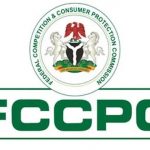The number of digital lenders approved to operate in Nigeria has surged to 380 as of February, up from 320 in October last year. These companies have either received approval from the Federal Competition and Consumer Protection Commission (FCCPC) or a license from the Central Bank of Nigeria (CBN).
According to the FCCPC database, 322 digital lenders have been granted full approval, while 42 operate with conditional approval. An additional 16 companies hold CBN licenses, bringing the total to 380.
Despite this growth, concerns are mounting over unethical practices by some digital lenders. Many borrowers have reported cases of unauthorized loans, inflated loan amounts, and aggressive debt recovery tactics. Some licensed lenders have been accused of using harassment and threats—methods commonly associated with illegal loan sharks.
A borrower, Ijeoma, shared her experience of applying for a ₦100,000 loan but receiving ₦1 million instead. When she contacted customer service, she was told to repay ₦1.118 million within three days. Another borrower, Tola, reported receiving an unsolicited loan from a licensed lender and being forced to repay it with interest.
Financial analyst Gbolagunte Ajayi criticized the FCCPC for focusing only on approvals rather than monitoring how these companies operate. He urged stricter oversight to ensure ethical lending and debt recovery practices.
The FCCPC has defended its regulatory efforts, stating that 47 loan apps have been delisted from the Google Play Store, and 88 others remain under watch. According to Dr. Adamu Abdulahi, Executive Commissioner of Operations, the commission’s goal is to track the companies behind loan apps and hold them accountable for any infractions.
While acknowledging the challenges, Abdulahi noted that digital lenders play a crucial role in the economy. He emphasized that the FCCPC is working to balance lenders’ operations with consumer protection, ensuring fair treatment of borrowers while addressing loan repayment issues.










